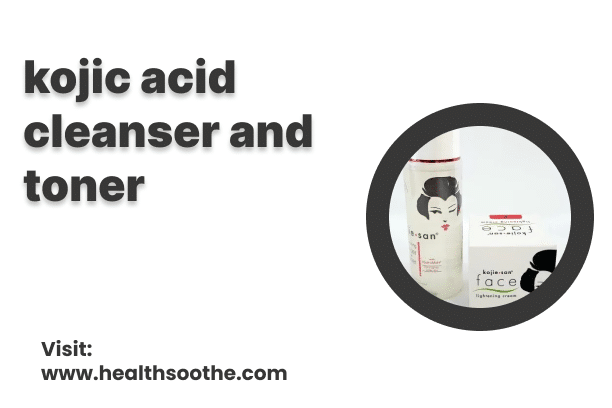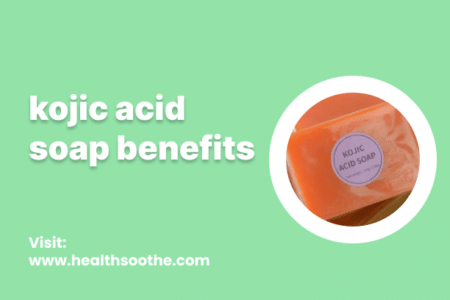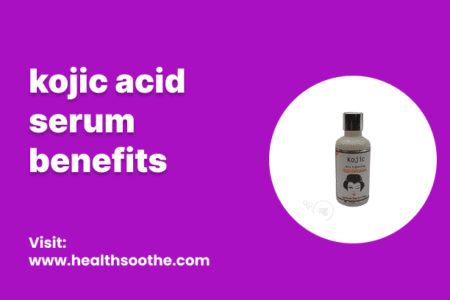Kojic acid is a natural compound that functions as a tyrosinase inhibitor. Tyrosinase is an enzyme involved in melanin production, the pigment responsible for skin color. By inhibiting tyrosinase activity, kojic acid helps to reduce melanin production, leading to a brighter and more even complexion. It's particularly effective in addressing issues like sun spots, age spots, acne scars, and melasma.
Unlocking Radiance: The Magic of Kojic Acid Toners
In the ever-evolving world of skincare, one ingredient that has gained significant attention for its skin-brightening properties is kojic acid. Derived from certain fungi and fermented rice, kojic acid has been a staple in traditional Japanese skincare for centuries. Today, it's widely used in various skincare products, with kojic acid toners being particularly popular for their ability to address hyperpigmentation, dark spots, and uneven skin tone. In this comprehensive guide, we'll delve into the science behind kojic acid, the benefits of kojic acid toners, how to use them effectively, potential side effects to be aware of, and tips for choosing the right toner for your skin type.
Benefits of Kojic Acid Toners:
- Brightening Effect: The primary benefit of kojic acid toners is their ability to brighten the skin. Regular use can help fade dark spots and hyperpigmentation, resulting in a more radiant complexion.
- Even Skin Tone: Kojic acid toners can also help even out skin tone by reducing the appearance of redness, discoloration, and blotchiness.
- Anti-Aging Properties: Some kojic acid toners may contain antioxidants that help combat free radicals, reducing the signs of aging such as fine lines and wrinkles.
- Gentle Exfoliation: Many kojic acid toners also contain mild exfoliating agents like alpha hydroxy acids (AHAs) or beta hydroxy acids (BHAs), which promote cell turnover and reveal smoother skin.
How to Use Kojic Acid Toners:
Using a kojic acid toner is relatively straightforward, but it's essential to follow the recommended steps for optimal results:
- Cleanse: Start by cleansing your face with a gentle cleanser to remove dirt, oil, and impurities.
- Tone: Apply the kojic acid toner to a cotton pad and gently swipe it across your face and neck. Avoid the eye area.
- Wait: Allow the toner to absorb into your skin for a few minutes before proceeding with the rest of your skincare routine.
- Moisturize: Follow up with a moisturizer to keep your skin hydrated and balanced.
- Sun Protection: During the day, always apply sunscreen to protect your skin from UV damage, as kojic acid can increase sun sensitivity.
Potential Side Effects of Kojic Acid:
While kojic acid is generally considered safe for topical use, some individuals may experience mild side effects, especially if they have sensitive skin. These potential side effects include:
- Irritation: Kojic acid may cause redness, itching, or a burning sensation, particularly if used in high concentrations or combined with other potent ingredients.
- Dryness: Excessive use of kojic acid toners without adequate moisturization can lead to dry or flaky skin.
- Sun Sensitivity: As mentioned earlier, kojic acid can make your skin more sensitive to sunlight, so it's crucial to use sunscreen daily.
If you experience any adverse reactions, discontinue use immediately and consult a dermatologist.
Read Also: list of sulfonamide medications
Pros and Cons of kojic acid toners
Pros:
- Skin Brightening
- Even Skin Tone
- Gentle Exfoliation
- Antioxidant Properties
- Suitable for Various Skin Types
- Easy to Incorporate
Cons:
- Potential Irritation
- Sun Sensitivity
- Dryness
- Slow Results
- Not Suitable for Everyone
- Limited Shelf Life
Differences Between kojic acid toners and kojic acid soap
Kojic Acid Toners:
These are used after cleansing and before moisturizing. They are applied to the skin using a cotton pad or by gently patting onto the skin with clean hands.
Kojic Acid Soap:
Kojic acid soaps are used during bath or shower time as a regular cleansing soap. They are lathered onto wet skin and rinsed off thoroughly.
Alternative to kojic acid toners
Arbutin Toners:
Arbutin is a natural skin-brightening ingredient that works by inhibiting tyrosinase, the enzyme responsible for melanin production. Arbutin toners can help fade dark spots and enhance overall skin radiance.
Will it bleach your skin?
Many individuals, particularly those with darker skin tones, might feel worried or puzzled when kojic acid products are advertised as "skin lightening" or "skin whitening." If you're questioning whether these terms imply skin bleaching, be assured that when used correctly in safe formulations, kojic acid does not bleach the skin.
Regrettably, the terms "bleaching" and "lightening" are frequently used as marketing strategies, especially in the context of beauty products targeted at the Asian and African diaspora, where lighter skin is often idealized. Consequently, both kojic acid and hydroquinone are sometimes misused in attempts to lighten the skin.
However, misrepresentation in marketing does not imply that kojic acid should be dismissed entirely. Here's how to utilize this ingredient appropriately.
Choosing the Right Kojic Acid Toner:
When selecting a kojic acid toner, consider the following factors:
- Concentration: Opt for a toner with a moderate concentration of kojic acid (usually around 1-2%) to minimize the risk of irritation.
- Additional Ingredients: Look for toners that contain hydrating ingredients like hyaluronic acid or soothing botanical extracts to offset potential dryness or irritation.
- Skin Type: Consider your skin type and concerns. For oily or acne-prone skin, choose a toner with oil-control properties. For dry or sensitive skin, opt for a gentle formula.
- Brand Reputation: Choose reputable brands known for their quality and safety standards.
Conclusion:
Kojic acid toners offer a promising solution for those struggling with hyperpigmentation, dark spots, and uneven skin tone. By inhibiting melanin production and promoting skin renewal, these toners can help you achieve a brighter, more radiant complexion. However, it's essential to use them responsibly, patch-test new products, and prioritize sun protection to prevent any potential side effects. With the right approach and product selection, kojic acid toners can be a valuable addition to your skincare routine, unlocking the radiant skin you deserve.



